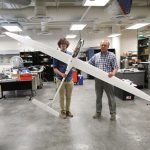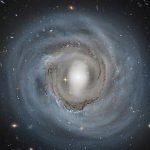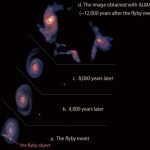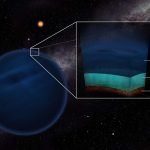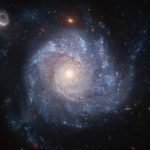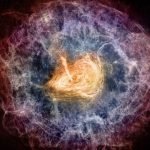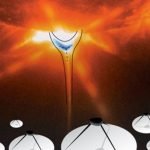Engineers design motorless sailplane for Mars exploration
Eight active spacecraft, including three operated by NASA, orbit Mars, gathering imagery of the planet's surface at a resolution of about 1 foot per...
This smart earbud will measure how astronauts sleep
Sleep is important for our health and well-being, and bad sleep can negatively impact our attention span, memory, decision-making skills, creativity and judgment.
Astronauts living...
New fossil galaxy discovery could reveal the history of the universe
The fossil, which was uncovered via a systematic visual search of legacy survey images using the Mayall 4-metre telescope, led by Dr David Martinez...
Astronomers discover an unusual star with two spiral arms
Astronomers using the ALMA Observatory have discovered an unusual, massive star near the center of our galaxy, a star that has two spiral arms.
The...
Liquid water could exist for billions of years on non-Earth-like planets
Low-mass planets with a primordial atmosphere of hydrogen and helium might have the temperatures and pressures that allow water in the liquid phase.
The...
This star not only survived a supernova, but also became brighter
A supernova is the catastrophic explosion of a star.
Thermonuclear supernovae, in particular, signal the complete destruction of a white dwarf star, leaving nothing behind.
At...
Astronomers find a brand-new pulsar that’s probably less than 14 years old
Neutron stars are dense remnants of large stars. They are the collapsed cores of stars formed during a supernova explosion.
While we know generally how...
New picture reveals the death of hypergiant stars
Astronomers have created a detailed, three-dimensional image of a dying hypergiant star.
The team traced the distribution, directions, and velocities of a variety of molecules...
Scientists help unravel surprise asteroid mystery
When asteroid 2019 OK suddenly appeared barreling toward Earth on July 25, 2019, Luisa Fernanda Zambrano-Marin and the team at the Arecibo Observatory in...
Scientists find particle accelerator region inside a solar flare
Solar flares are among the most violent explosions in the solar system.
But despite their immense energy -- equivalent to a hundred billion atomic bombs...

